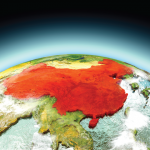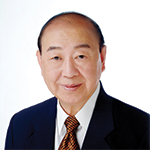Mark Danderson, vice president of CMT in charge of foreign business development, says that by 2012, China is expected to surpass Japan as the second-largest medical market in the world. “From that point forward,” he says, “medicine will truly be a bipolar world with the U.S. and China in the lead. It is in the interest of both China and the West to build bridges and learn from each other.”
Danderson says that the East Meets West Dialogue is important because Chinese researchers are not integrating into the global community to a degree that would be expected at this stage of China’s development. He cited several barriers to their participation, including cost and language skills. Chinese doctors earn only a small fraction of what their Western colleagues do, Danderson notes, and Chinese doctors, on average, are far less proficient in English than their colleagues abroad. It is also difficult for Chinese doctors to get visas to travel to Western countries. Finally, Chinese doctors are often unfamiliar with Western medical societies and lack connections with Western doctors that would naturally encourage communication and participation in Western medical meetings.
At the end of the meeting, the Chinese participants were asked to rate their experiences. They said that the most important benefits were increasing their understanding of the field of rheumatology, obtaining new clinical research information, and learning about foreign clinical practices. They also rated meeting foreign experts as an important part of the meeting.
“I hope this exchange can be the first of many to come,” Dr. Cohen says. “I think it is important to embrace our international colleagues as the world continues to become smaller. The ACR is known for fostering lifelong friendships, and I think this program will be beneficial to ACR members from all over the world.”
Lending a Hand in Pakistan
Plans are currently underway to continue the East Meets West Dialogue during the 2011 annual meeting in Chicago, but ACR members already are making a difference by participating in smaller programs like the one in Pakistan. Sara E. Walker, MD, an ACR Master who is also professor emeritus at the University of Missouri in Columbia, first traveled to Pakistan in 1999 with her late husband, rheumatologist Donald R. Kay, MD, at the invitation of Arif Nawaz, MD, a U.S.-trained gastroenterologist. During the trip, she met Dr. Ahmad and Sumaira Farman, MBBS, CCD, an ACR international fellow, as she gave talks on a variety of topics in several teaching hospitals and saw patients in Lahore and Islamabad.


